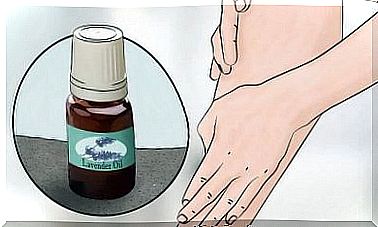Teach Your Child To Recognize True Friendships
By helping your child to recognize true friends, you are also helping them identify toxic relationships. If he learns to act like a good friend, he can also enjoy healthy friendships.

As parents, we are our children’s first friends. We play and hang out with them, but it’s also quite normal for them to make new friends over time. They get to know other children at school, in the neighborhood or with the rest of the family. How can we teach them to recognize true friendships ?
This work starts when the little ones are 4 or 5 years old, because then they develop the most important social skills. You learn to form and keep true friendships . Later they also have to recognize when a friendship causes them problems and worries.
One of our most important jobs is to teach them the value of friendships. This is especially true when, as parents, we want friendships to make our children happy.
Help your child understand what true friendships are
If you are a father or a mother, you might think that it is very obvious that friendship is a positive experience. But that’s not the case for all children, you have to understand that.
If they don’t experience friendship like this, it means something is wrong. Children must learn from an early age what true friendships are and that they are a way of expressing love.
How do you identify true friendships?

We cannot choose our children’s friendships. Especially during puberty, friends become more important than anything else in our children’s lives.
However, we are able to advise them on what true friendships are that show us respect and honesty so that our children can build these precious friendships.
You can kindly advise your child to look out for the following signs with their friends. Here’s how it can tell who true friends are:
True friendships …
- Celebrate your successes and help you in bad moments. They cheer you when you get the grade you want or when you score a goal. They are also by your side when you have a problem and encourage you to overcome it.
- Help you when you need something.
- Treat you well. They are kind to you and don’t make fun of you or your opinions.
- Are honest. They tell you what they think and don’t suddenly change their character.
- Avoid conflicts and don’t make fun of others.
- Are loyal and constant. Even if there is an argument, you don’t have to worry that the friendship will be lost.
- Laugh and have fun together.
- Don’t be angry when you have other friends too. Friendships that do not allow any further are usually toxic.
- Respect your opinion and let yourself be expressed. They may not agree, but they respect yours.
- Don’t force yourself to do something you don’t feel like doing. If you don’t want to go to a party, drink alcohol, or use drugs, then they’ll respect your decision without judgment.
If our child has at least one friend who meets these characteristics, then he undoubtedly has a true friendship.
How do you help your child overcome toxic friendships?

When she comes home from school, Marina locks herself in her room every day. Her mother knows that this is her way of curling up to deal with the treatment she is getting from her best friend.
One day she doesn’t go by Marina’s side, the next she ignores the girl and doesn’t let her join the group.
Marina doesn’t know how to deal with this friend who loves and hates each other at the same time. This is completely normal.
As with all human relationships, communication is fundamental. Communication is a very valuable tool in helping your child deal with a toxic friendship . Listen to your daughter and be very patient.
Put yourself in her shoes and understand what emotional ups and downs she is experiencing as a result of this conflict. If she can express her feelings, that is a kind of liberation.
Let your child understand how much they are really worth
You can help your child build their confidence. Get them to take part in other activities that they do well and have opportunities to meet other groups of children.
You can also advise them to approach other children in the class who they might find real friendships with.
Most of all, we must help our children overcome the challenge of having a bad friendship. We need to talk to them so that they understand what kind of relationships they are forming.
This then helps them to remain stable in order to deal with the problems of youth.
Be a true friend to others
The American poet and philosopher Ralph W. Emerson wrote: “The only way to have true friendships is to be a true friend yourself.” This is a good concept for our children to understand what true friendships are.
When they treat other people well and do the right thing, good people will be drawn to them. This is the best way to build true friendships.
Children who receive attention and orientation from their parents have an easier time identifying true friends with whom they also endure a trial by fire and share many great experiences.









